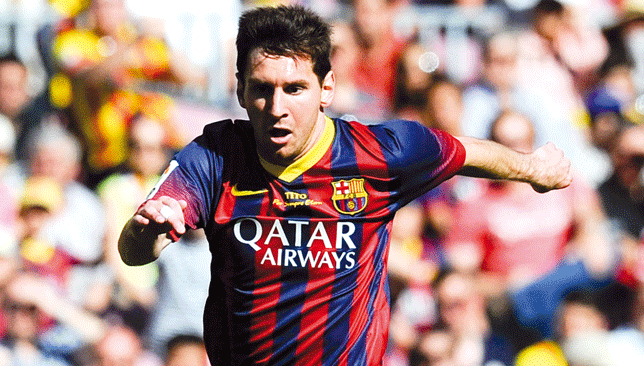
Barcelona’s appeal to the Court of Arbitration for Sport against FIFA’s transfer ban is much more than just a knee-jerk, angry reaction to an unusually severe penalty.
Rather, it is borne of a deep-rooted belief that FIFA’s current regulations on the transfer of international minors, the rules which Barca have been found guilty of transgressing, are not fit for purpose.
FIFA’s noble intention in forbidding young players to be signed by professional clubs overseas is to repel the very real threat of child trafficking, which entails unscrupulous ‘agents’ receiving significant fees to find a European home for bright prospects, often from poverty-stricken parts of Africa.
In the past there have been many instances of agents and clubs failing to fulfil their obligations to their teenage recruits, leaving the helpless youngsters uneducated, stranded and alone in a new and strange country or sent back home with only shattered dreams. It is the responsibility of FIFA, as the game’s governing body, to implement regulations to prevent vulnerable children falling prey to the vultures who seek to greedily profit from football’s enormous global popularity.
However, Barca believe the current blanket ban on all transfers fails to adequately address the problem and that each club should be judged on their merits.
Barca will argue to CAS that if responsible European clubs make a genuine and long-term commitment to the overall welfare of the players they sign, they should be judged differently to those with less admirable intentions. They are exceptionally proud of the work carried out by their world-renowned ‘La Masia’ academy, which has delivered a string of superstars over the last few years.
Indeed, the best evidence Barca can present is the fact that, if the current guidelines had been in place 15 years ago, they would never have been allowed to bring Lionel Messi from Argentina to Spain.
If another Messi was to appear right now, however, Barcelona – or any other club – would be forbidden from signing him until he reached the age of 18, which is clearly far too late to fully develop the potential of any young person in any walk of life. Barca have a compelling case, but that doesn’t simply give them the right to break the rules willy-nilly, which seems to have been the case routinely over the last few years.
Regardless, the Nou Camp club needn’t be too concerned.
The signings they have made this summer – two goalkeepers, two centre-backs, a central midfielder and a striker – will be enough to see them through at least until they are allowed to enter the transfer market again in January 2016. Unless this summer’s signings are disastrous failures, the squad now possesses enough quality in depth to face the next 18 months with confidence.
That is even more the case with a glance at Barca’s B team, which is on the verge of delivering another batch of exceptional young players such as Sergi Samper and Munir El Haddadi, whose imminent emergence backs up Barca’s argument that they look after young players better than any other club in the world.
But that won’t, and shouldn’t, influence CAS’s decision.
Just because you don’t like a rule, it doesn’t mean you can break it.
Barca’s penalty will stay in place.